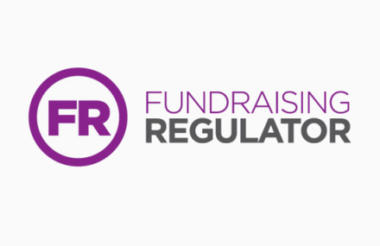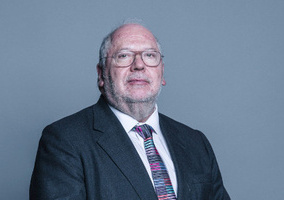The Fundraising Regulator has said it plans to review the levy system for charities in 2020, and that it will be considering concerns that smaller charities are paying more proportionally than larger ones.
Speaking at the Regulator's Annual General Meeting held in central London yesterday, chief executive Gerald Oppenheim said: "It may be that through the review and consultation process we look at whether the system should continue to be based on the amount spent on fundraising activities or whether we should move to a system based on the overall fundraised income of the organisation.
"This may go some way to addressing concerns that payments are unevenly distributed between larger and smaller charities."
Funding shortfall
The review comes on the back of figures published by the Regulator yesterday showing that it generated £2.17m during the year ending 31 August 2019.
The total income – including £58k from commercial organisations and £109k from small charities that fall outside the levy bands – is just under the £2.2-2.4m recommended by the Cross-Party Review for the Regulator to complete its tasks effectively and build reserves.
Chair of the board Lord Toby Harris said that funds recouped through the levy had yet to hit the full budget requirement. However, he added that 90 per cent of the levies due in the latest round of collection starting this October had already been paid.
"The uncertainty around the Regulator's role has definitely lessened, with record numbers of charities paying the levy and showing clear support," said Lord Harris. "We will review the levy system through a consultative process next year."
The Regulator last made changes to the levy system in March this year, introducing two extra bands at the lower end of the levy payment scale, meaning that smaller charities would move up the scale more gradually as their fundraising expenditure increases.
The new review is being conducted with an eye to implementing any changes at the start of the payment cycle starting September 2021.
96 per cent paying the levy
Oppenheim said that 96 per cent of eligible charities had paid the levy during its third year of operation. Twenty charities within the levy bands had refused to pay, with a further 100 eligible organisations failing to respond to requests for payment from the Regulator.
The 2018/19 accounts show that 3,597 organisations registered with the Regulator, up 597 from the previous accounting period, meaning that many of the UK's charities are yet to register.
"We will be making greater efforts to raise awareness among small charities of the work we do and the benefits of them registering with us," added Lord Toby.
Fundraising Preference Service review
By far the largest expenditure of the Fundraising Regulator's budget is the Fundraising Preference Service (FPS), accounting for 19 per cent, or £376k, of the Regulator's budget. However, the number of suppressions made through the service has nearly halved since it was launched in July 2017.
The FPS allows members of the public to opt out of communication from as many charities as they like, although they are only be allowed to select them three at a time.
"We need to look at whether the FPS can be improved moving forward, so will also be conducting a review of this next year," said Lord Toby.
In response to the decrease in the number of people using the service, Oppenheim said that it could in fact be a "good news story". "When the General Data Protection Regulation came into force, charities had to look very closely at how they contact people. It could be that the fall in suppressions is related to improvements in the way charities use data and how they communicate with their supporters."
Lord Toby said that despite the decrease in active users, expense on the FPS was justified. "I think we have to consider that around 30 per cent of all suppressions were made on behalf of someone else, so the service is definitely benefitting vulnerable segments of society. Any discussion on the validity of the service must take that into account."
Oppenheim added: "We need to look again at how the FPS is marketed and the real value that it brings. We have more work to do on this."
|
Related items












